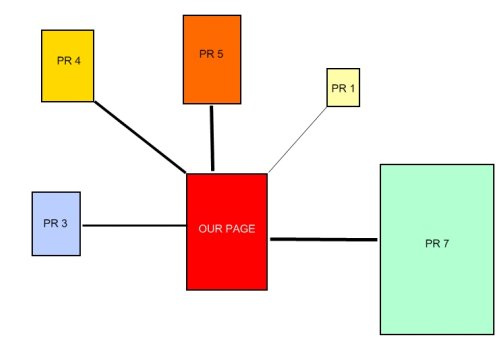A new year means it’s time for a new SEO strategy. Google doesn’t go a full year without making some drastic algorithm changes. If you’re trying to ramp up your SEO this year, here are a few tricks you definitely want to avoid.
Stop Paying for Links

Image via Flickr by Simon Davison
Reciprocal links went out of style a few years back. But in 2013, both reciprocal and paid links are definite no-nos. Google and other search engines are catching on quickly to underhanded tactics designed solely to boost rankings, and they’re not tolerating it. If you get caught buying links, your penalty could take years to overcome.
Stop Focusing Solely on Rankings

Image via Google.com
Yes, rankings are important and strongly correlated to click-through rates. However, high rankings are not the only way to gain traffic to your website. With the rise of the social web, search engines have become slightly less important—which is part of the reason search engines are integrating social results in the SERPs.
It’s just as likely that new customers will find you via social media as they will via a search. If you shift your focus to an overall web strategy, including well-optimized social media brand pages, you’ll see results from your effort. Again, the key is to connect with your audience.
Focus on Quality, Not Quantity

Image via Flickr by audi_insperation
The amount of content you produce is important, and you should make every effort to produce as much content as you can–even if that means blogging via your laptop on the train to the office. But more important than quantity is quality. There’s no point in pushing out tons of content if it doesn’t resonate with your readers. Why? Because you’re going to lose traffic, lose social shares and lose your credibility. It’s not worth it.
Lose the Google Focus

Image via Flickr by toolstop
Sure, Google is still the giant when it comes to SEO. Google’s algorithms are largely considered the gold standard for SEO best practices. Typically, what goes for Google will go for the other search engines? While you could get away with a few black-hat tricks with smaller engines, you probably won’t get the same leeway with Google.
Use Google as a standard for ethical SEO tactics. But do watch your rankings on other search engines as well, as Yahoo, Bing and some other search engines have enough market share to make it worth your efforts.
Ditch the Keyword Stuffing

Image via Flickr by Caza_No_7
Use too many keywords, and your content seems forced and unnatural. This type of content will quickly alienate your readers. What comes next? Google and other search engines start to penalize you for over-optimization. The over-optimization penalty became a reality in late 2012, and it’s not going away anytime soon.
Write for Your Audience, Not the Search Engines

Image via Flickr by toprankonlinemarketing
One of the biggest changes in SEO in the recent months is the value of social sharing and visitors to improving your rankings. The more your content is shared, the more likely it will be to have a desirable position in the SERPs. So write for your audience. Provide your readers with valuable, engaging content that’s both entertaining to read and informative.
Avoid Anchor-Text Loading in the Footer

Image via Flickr by blprnt_van
You’ve seen it before—the endless lists of exact anchor text no one will actually ever search for in the footer of a web page. And often, it’s in very similar colors so it’s not easy to see, although the search engines can see it. This tactic should definitely be tossed in the trash can this year. The over-optimization penalty will be cracking down on situations just like this throughout the year.
Use your footer wisely. List links to relevant areas of your website that aren’t included elsewhere which visitors might actually need to use. That means pages such as contact information, an about us page, media information or contacts, secondary products or services, and other information not well-suited for your primary navigation.
Look Beyond On-Page SEO
If you’re buying into the school of thought that content is king, you’d be right. But the king needs some supporters. Good content alone isn’t enough. Look beyond the Meta tags, keywords and headlines to how you can boost traffic to your content with off-site tactics. This means building relationships with relevant bloggers, using strategies such as guest blogging and devoting the necessary attention to your social media presences to generate interest and engagement.
Never Employ Spammy Commenting

Image via Flickr by Patrick Hoesly
One of the oldest tricks in the SEO book is to simply visit blogs and forums and post irrelevant comments, including a link back to your target page. While it’s a perfectly acceptable—and valuable—practice to engage with the community and give useful insights and appropriate answers to relevant questions and comments, it’s never a good idea to make mass comments or completely irrelevant comments for the sole purpose of getting a link.
For starters, the other participants in the discussion will be quickly turned off by your lack of class. And the blog publisher or forum manager will likely delete or disapprove your comments, rendering your efforts useless anyway.
Stop Obsessing Over PageRank

Image via Flickr by pipot83
Victims of the Penguin update which have a high PageRank will be glad to tell you that this outdated metric doesn’t mean as much as it seems to on the surface. There’s a long-standing belief that a link from a high PageRank site will be more valuable than a link from a low-PR site.
Instead of focusing on high-PR sites, focus on earning links from closely related websites. Even sites with a PR0 or PR1, if relevant to your own content, can provide a significant boost to your SEO effort.
The world of SEO is constantly evolving. As Google, Yahoo, Bing and other search giants strive to make their results more relevant to users, they’ll employ more sophisticated algorithms to accomplish this goal. Keeping up with the latest news and trends in SEO is half the battle, and ditching outdated tactics is increasingly important.
Opinions expressed in the article are those of the guest author and may not reflect the views of Webaholic.
Author Bio: Shaun Chatman is a well published author on many authority sites. He lives in Dunedin, FL, and spends his free time playing with his kids or advising friends on tech, gadgets, finance and travel.

